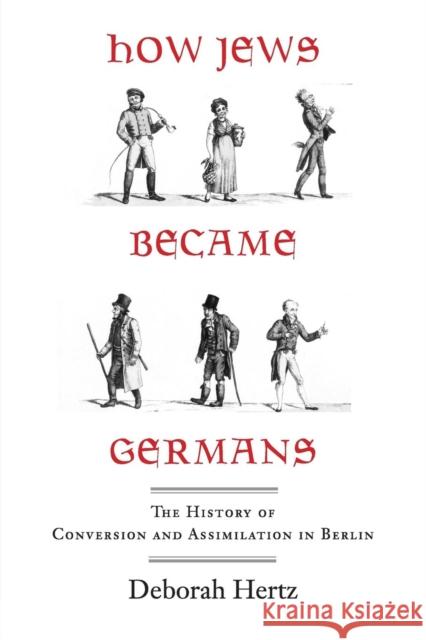How Jews Became Germans: The History of Conversion and Assimilation in Berlin » książka
How Jews Became Germans: The History of Conversion and Assimilation in Berlin
ISBN-13: 9780300151640 / Angielski / Miękka / 2009 / 288 str.
When the Nazis came to power and created a racial state in the 1930s, an urgent priority was to identify Jews who had converted to Christianity over the preceding centuries. With the help of church officials, a vast system of conversion and intermarriage records was created in Berlin, the country's premier Jewish city. Deborah Hertz's discovery of these records, the "Judenkartei," was the first step on a long research journey that has led to this compelling book. Hertz begins the book in 1645, when the records begin, and traces generations of German Jewish families for the next two centuries. The book analyzes the statistics and explores letters, diaries, and other materials to understand in a far more nuanced way than ever before why Jews did or did not convert to Protestantism. Focusing on the stories of individual Jews in Berlin, particularly the charismatic salon woman Rahel Levin Varnhagen and her husband, Karl, a writer and diplomat, Hertz humanizes the stories, sets them in the context of Berlin's evolving society, and connects them to the broad sweep of European history.











